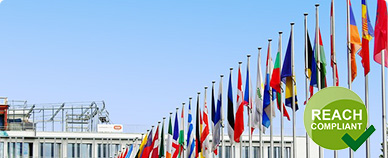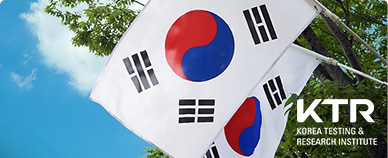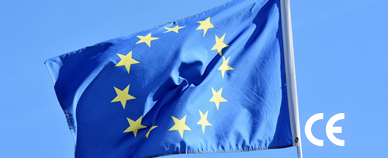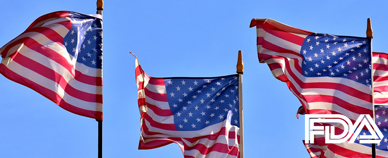RCS recovery content standard certification
Project overview
The RCS Recycling Claim Standard, or RecycledClaimed Standard, is another recycling (recycling) standard introduced by TE Textile Trading in 2013 to provide a basis for certification of products that use recycled materials. Suitable for products with recycled raw material content between 5% and 100%. There are several certification bodies such as Shanghai World You Certification Co., LTD., which can be freely selected, and certified enterprise information can be found on the TE- Textile trading Organization website. The purpose of RCS certification is to ensure that products contain recycled materials. Giving consumers confidence that the products they buy contain recycled materials because they are choosing products made from recycled materials helps to increase the use of recycled materials and reduce the amount of waste. The standard used by RCS is the regulatory requirement (CCS). CCS, for its part, is a common standard for supply chains. This standard contributes to the consistency and efficiency of the certification process. Once a company has been certified to meet CCS standards, other supply chain requirements are based on CCS, reducing duplicate certification.
Scope of application
RCS certification is applicable to products with a recycled raw material content between 5% and 100%. Scope of Application:
1. A manufacturer that processes recycled materials into recycled materials;
2, the use of pre-consumption recycling materials, or post-consumption recycling materials, to replace primary materials, processing production or their own finished products manufacturing plants;
3, have requirements for the use of recycled materials in the supply chain, or have requirements for the product in the market for recycling claims.
RCS authentication target
The purpose of RCS certification is to ensure that products have recycled materials, so that consumers can trust that the products they buy contain recycled materials. Through RCS certification, enterprises can increase the use of recycled materials, reduce the amount of waste, so as to meet customers' requirements for environmental protection, and obtain the recognition of international brand-name customers, prevent foreign customers to repeatedly audit suppliers, thereby saving costs. In addition, RCS certification also helps to enhance the brand image of enterprises, reduce operational risks and operating costs, and attract more talent. In short, the purpose of RCS certification is to promote the sustainable development and environmental awareness of enterprises, and protect the interests of the public and the quality of the environment.
The standards used for RCS certification are regulatory requirements (CCS). CCS, for its part, is a common standard for supply chains. This standard contributes to the consistency and efficiency of the certification process. Once a company has been certified to meet CCS standards, other supply chain requirements are based on CCS, reducing duplicate certification.
Audit result
There are two kinds of certificates for RCS certification, namely SC (Qualification Certificate) and TC (Transaction Certificate).
1, the certification body will issue SC after the audit, the validity of the certificate is one year. After getting the SC certificate, it means that you have the qualification to undertake RCS product orders.
2, TC is the real certificate of each batch of RCS order product trading, the issuance of TC is established after the SC certificate is obtained, resulting in a real transaction, you can apply to the certification body.
The services we provide
Provide a one-stop service for RCS recycling certification to prove that the company is capable of manufacturing goods that meet specific standards. You can also issue a Transaction Certificate (TC) for your product to confirm that a batch contains the declaration material.
- • Life cycle assessment: Product Carbon Footprint (PCF), Product Environmental Footprint (PEF)
- • Product Low-carbon Certification: Environmental Product Declaration (EPD certification)
- • Recycled materials certification: ISCC Plus certification, GRS certification, RCS certification,
- • Supply chain sustainable information disclosure: organizational carbon inventory, CBAM data filling, CDP climate questionnaire filling, EcoVadis certification, SBTi certification, ESG report preparation
- • Registration system construction and physical examination pre-examination consulting service
Zhongbang is one of the earliest institutions in China to engage in compliance consulting services. It has a senior expert team composed of PhDs, Masters, and Bachelor's degrees, and has established branches in the UK, the United States, South Korea, Beijing, Shanghai, Suzhou, Fuzhou, Shenzhen, and other places, forming a global service network layout.
-
Strong technical strength:
A strong team composed of mid to senior technical personnel with professional backgrounds in chemistry, food nutrition and health, medicine, biology, toxicology, environment, and other fields
-
International service level:
A business elite team with multiple languages including English, Japanese, German, and Chinese, efficiently serving international customers
-
Rich compliance experience:
With years of experience in global product and regulatory research in multiple fields, we are able to provide comprehensive and high-level compliance consulting support to various customers
-
Localized service capabilities:
Having multiple branch offices in the UK, USA, South Korea, Beijing, Shanghai, Suzhou, Fuzhou, Shenzhen, etc., we can provide you with services nearby
Service Hotline :400-115-9001
Zhongbang Consulting (Shandong Zhongbang North Management Consulting Co., Ltd.) focuses on product registration and compliance consulting services. With its professional technology, diverse resources, and global network, we are committed to providing regulatory consulting and environmental regulation response services for pharmaceutical, chemical, consumer goods production enterprises, and large multinational corporations. To solve the environmental, health and safety laws and regulations, product quality standards, and other issues faced by enterprises in production, sales, and global trade processes.
Accumulated Customers
18,000+
Distributed in 35 countries and regions
14year
Industry experience
260+
Senior expert team
15+
Subsidiaries
300+
Collaboration Cases
Brand Cases
The choices and trust of over 18000 customers are the driving force for Zhongbang to continuously improve its services. We are willing to grow together with these excellent enterprises
Service Hotline:400-115-9001






































































 Consultation
Consultation
 400-115-9001
400-115-9001